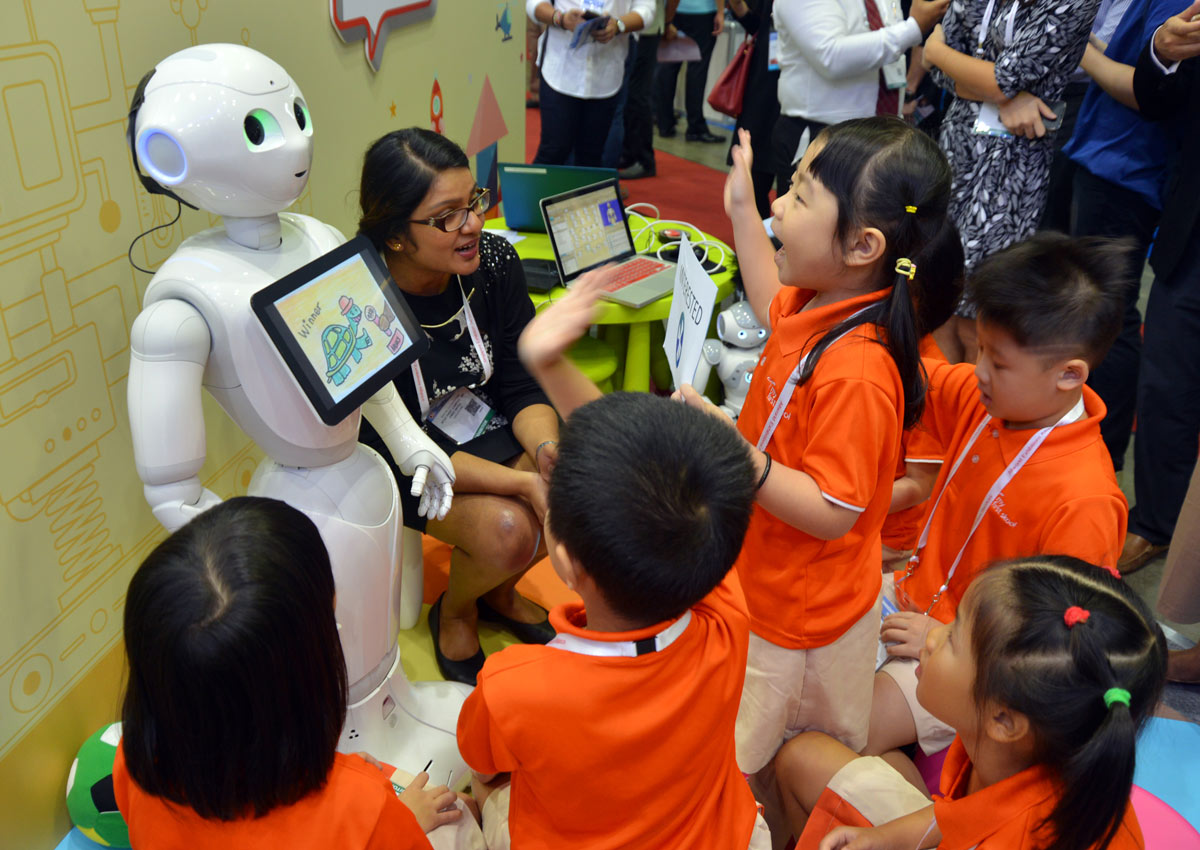Call them the new breed of pre-school teachers.
They are infinitely patient – they will repeat their questions as many times as required. Nor are they likely to scold – even if they are poked or prodded by curious children.
Meet Pepper and NAO, two humanoid robots who have been helping out in two pre-schools here, under a six-month trial to see how robots can be used to teach children in interactive ways.
Pepper, a 1.2m humanoid robot with a touchscreen on its chest, has been reading stories like The Tortoise And The Hare to pupils at My First Skool Jurong Point.
NAO, who is half of Pepper’s height, has been interacting with pre-schoolers from MY World at Bukit Panjang by telling stories too and even dancing.
The pre-schools are collaborating with the Infocomm Development Authority of Singapore (IDA) and Nanyang Technological University in this pilot.
Together, they “explore the use of social-humanoid robots in early childhood through interactive storytelling and collaborative play”, said Minister for Communications and Information Yaacob Ibrahim, who announced the initiative at the opening of the Infocomm Media Business Exchange at Maria Bay Sands yesterday.
The collaboration is part of a larger push by the Government to work more closely with industry partners in its Smart Nation push to integrate technology and connectivity into everyday life in Singapore.
Another partnership announced yesterday is a pilot at Sentosa where solar panels will be used to power outdoor Wi-Fi access points in a green and cost-efficient way from now to September next year.
Visitors to the Merlion Walk will be able to access the Wireless@SG network while outdoors. These solar panels can cut the installation time of outdoor Wi-Fi by up to five times and the cost by up to half.
IDA is working with wireless networking firm Aruba, telco M1, local technology firm Skylab and Sentosa Development Corporation in this trial. Visitors can also access outdoor Wi-Fi at Palawan Beach, Siloso Beach, and Fort Siloso Skywalk. However, these points are not powered by solar panels.
“If this pilot is successful, we could potentially expand Wireless@SG to reach more outdoor areas in a sustainable manner, and bring public Wi-Fi coverage in Singapore to the next level,” said Dr Yaacob.
He also provided updates on the TechSkills Accelerator programme, launched in March, which aims to help job seekers pick up skills in the infocomm technology sector.
A governing council, made up of both government members and industry partners overlooking the programme has been set up. It will focus on creating job opportunities in the digital sections of three main areas: financial services, healthcare and infocomm technology.

Get MyPaper for more stories.






